২১ ফাল্গুন ১৪৩২
Ramadan's Glory in Bengali Literature
14 March 2025 15:03 PM
NEWS DESK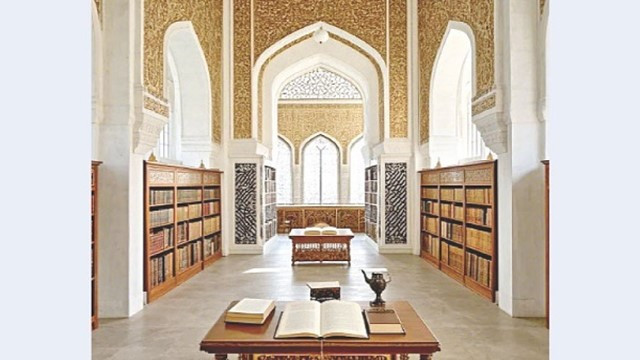
Ramadan is a month of self-purification, piety, and the believer awakens in the love of Allah by being endowed with the qualities of 'Sifate Rabbani' or Allah. Sociality among people increases during Ramadan. National Poet Kazi Nazrul Islam has presented Ramadan as a resonance of self-awakening
‘‘মাহে রমজান এসেছে যখন, আসিবে ‘শবে কদর’,
নামিবে তাহার রহমত এই ধূলির ধরার পর।
এই উপবাসী আত্মা, এই যে উপবাসী জনগণ,
চিরকাল রোজা রাখিবে না আসে শুভ ‘এফতার’ ক্ষণ।’’
Islamic Renaissance poet Farrukh Ahmed explains Laylatul Qadr in his poem 'Shabe-Qadr':
“এখনো সে পুণ্য রাত্রি নামে পৃথিবীতে, কিন্তু
এক অন্ধকার ছেড়ে অন্য এক আঁধারে হারায়,
ঊর্ধ্বে ইঙ্গিত আসে লক্ষ মুখে, অজস্র ধারায়;
নর্দমার কীট শুধু পাপ-পঙ্কে খোঁজে পরিত্রাণ।”
Tarawih is recognized as a dignified form of worship in the current Bengali context of self-awakening. Poet Jasimuddin's submission:
‘তারাবি নামাজ পড়িতে যাইব মোল্লাবাড়িতে আজ...
চল দেখি ভাই খলিলদ্দীন, লণ্ঠন-বাতি জ্বেলে।
ঢৈলারে ডাক, লস্কর কোথা, কিনুরে খবর দাও।
মোল্লাবাড়িতে একত্র হব মিলি আজ সারা গাঁও...
...মোল্লাবাড়িতে তারাবি নামাজ হয় না এখন আর,
বুড়ো মোল্লাজি কবে মারা গেছে, সকলই অন্ধকার।
...কিসে কি হইল, কি পাইয়া হায় কি আমরা হারালাম,
তারি আফসোস শিহরি শিহরি কাঁপিতেছে সারা গ্রাম।’
The Bengali Muslims have their own culture, inspired by the spirit of Tawhid and Risalat, and dedicated to the goal of peace and liberation in this world and the hereafter. In this, Iftar is a sacred meal with religious nobility.
The trend of Muslim culture in Bangladesh is very dynamic and the adaptability and assimilation process of Bengalis is very generous. As a result, it is difficult to limit the length of the Bengali Iftar list to a table or to a number. The Bengali Iftar culture has developed by combining Afro-Arabian trends, Mughal culinary delights, and Indian cuisine. There is no alternative to dates in Bengali Iftar. Because, dates are the favorite fruit of the beloved Prophet (PBUH).
Usually, the beloved Prophet (PBUH) used to have breakfast with seven dates. He used to tell everyone to break their fast with dates and water during the holy Ramadan. He used to say, 'If someone has some dates in his house, he cannot be called poor.'
In the 19th century, iftar was called ‘roza kholai’, meaning breaking the fast by eating food. Once upon a time, those with a little means would have various types of homemade muri, sweet and salty samuchas, raw and fried pulses, fruits, onions, phuluri, etc. in their iftar. There was a special sweet dish called ‘Golapi Ukhra’. Apart from this, roasted chira, dobhaja, tepi phuluri, big dal-boot of mashakalai, bakarkhani, various types of jilapi, various types of kebabs, etc. were present in the dastarkhana.
Cholamuri, onion are the Bengali Iftar tradition. Muri is a popular food of the people of Bangladesh. Cholamuri, which is spread instead of rice, chalbhaja, rice, khai-chira, is now the main ingredient of the iftar of Bengali Muslims. Whether it is a city or a village, rich or poor, cholamuri and piayaju are becoming permanent staples in everyone's iftar list!
Jilapi is a traditional food of Muslim Bengalis during iftar celebrations. Jilapi is one of the sweets that are made in our country besides milk, channa, etc. During the holy month of Ramadan, fasting people prefer to sweeten their mouths with jilapi. The outside of jilapi is hard and crunchy, while the inside is full of juice. Bengali folk pronunciation-
‘জিলাপি কড়কড়া, জিলাপি মরমরা;
জিলাপির প্যাঁচে প্যাঁচে রস ভরা!’
During Ramadan, through piety, patience, self-control, avoidance of lies, supplication, and repentance, the heavenly emotions and the ideal self-awakening free from sin are reflected in everyone's lives. However, the story of those miscreants who have lost the ability to worship is different.
‘জিহ্বায় তুমি মুমিন
অন্তরে তুমি মুনাফিক’
—আ. কাদির জিলানি (রহ.)।
In fact, it is expected that happiness should be equal for everyone, poor and suffering, during Ramadan. But Kazi Nazrul Islam asks:
‘জীবনে যাদের হররোজ রোজা ক্ষুধায় আসে না নিদ,
নিরন্ন সেই কৃষকের ঘরে আজ আবার আসিয়াছে কি ঈদ।’
Muhammad Barkatullah, in his article titled ‘ইসলামের মহাব্বত রোজা’, has highlighted the purpose of fasting as follows: ‘…the purpose of fasting is not only to remain hungry. Moreover, ‘both physical and mental restraint and the concentration of the mind towards Allah in the gentle atmosphere of restraint and tranquility resulting from that restraint are the main goals of fasting as prescribed by Islam.’
In an article titled ‘সিয়ামের তাৎপর্য’, Dewan Mohammad Azraf writes:
‘কাম প্রবৃত্তির অসংযত সন্তোষ বিধানের ফলে মানুষ পশুত্বের চরম স্তরে নেমে যায়। ক্রোধ মানুষকে হিতাহিত জ্ঞানশূন্য করে তোলে। লোভ, মোহ, মদ ও মাৎসর্য সামাজিক জীবনে বিশৃঙ্খলতার সৃষ্টি করে। এজন্য এগুলোর দাহনের জন্য এ দুনিয়ায় আল্লাহ সিয়ামের প্রবর্তন করেছেন। যাতে এ দাহনের ফলে মানুষ এ বিশ্বে তার প্রকৃত স্থান নির্দিষ্ট করতে পারে, সে যাতে আল্লাহর প্রতিনিধি বা ঠরপব-মবৎবহঃ হিসেবে আল্লাহর সার্বভৌমত্ব প্রতিষ্ঠা করতে পারে।’
রমজান তাকওয়া অর্জন ও আল্লাহর নৈকট্য লাভের মাস। সার্থকতা অর্জন করতে হলে রোজাদারকে কী কী করা উচিত, সে সম্পর্কে ডক্টর আইয়ুব আলী বলেন ‘সিয়ামের উদ্দেশ্যাবলি সার্থক করতে হলে সিয়াম পালনকারীকে প্রত্যেক অঙ্গ-প্রত্যঙ্গ ও রিপুগুলোকে অন্যায় থেকে বিরত রাখতে হবে এবং ন্যায়ের অনুশীলন করতে হবে। সারা দিন হালাল দ্রব্য গ্রহণে বিরত থেকে ইফতারির সময় যদি অন্যায় ও অবৈধভাবে উপার্জিত খাদ্যাদির দ্বারা ইফতার করা হয়, তবে সওয়াবের পরিবর্তে আরও গুনাহর কাজ করা হলো তা সাধারণ জ্ঞানেও বোঝা যায়।’
Poet Azizur Rahman emphasizes the importance of fasting in his poem 'Roja'
‘রোজা রেখে করো অনুভব/ক্ষুধার কেমন তাপ
দেহমনের সেই সাধনায়/পুড়িয়ে নে তোর পাপ।’...
কবি সাবির আহমদ চৌধুরী বলেন
‘একটি বছর পরে আবার/কুল মুসলিম বিশ্ব ধরায়
সিয়ামের মাস এলো রমজান/আব হায়াতের শান্তি সুধায়।
আত্ম অহং চিত্তদহন/বিনয় নম্র সংযমী মন।
কুল রোজাদার সব কে-খোদা/খাস রহমতের শিরনী বিলায়।’
অন্য কবিতায় বলেছেন
‘মাগফেরাতের সওদা নিয়ে/এলো মাহে রমজান
সকল মাসের শ্রেষ্ঠ এ মাস/তৌহিদী ফরমান।’
ফজল-এ-খোদা রমজান নিয়ে বেশ অনেক কবিতা রচনা করেছেন। এক কবিতায় লিখেছেন
‘আল্লাহ তোমার হাজার শোকর/দিলে মাহে রমজান
অধম নাদান বান্দার তরে/তুমি যে মেহেরবান।
রমজানের এই রহমতী মাস/মিটায় প্রাণের বেহেশতী আশ
খোদা আমরা তোমার দাসানুদাস/চাই যে শান্তি সত্য জ্ঞান।’
তিনি সাহরি নিয়ে ও বলেছেন
‘জাগো জাগো রোজাদাররা জাগো/জাগো রে এবার
লও সেরে লও থাকতে সময়/সেহরি তোমার।’
সৈয়দ এমদাদ আলী লাইলাতুল কদর নামে দীর্ঘ কবিতায় বলেছেন
‘বর্ষে বর্ষে আসে সে রজনী/ল’য়ে তার স্মৃতির সম্ভার,
বহাইতে মোসলেম অন্তরে/অনাবিল পুণ্যের পাথার।’
Ramadan is the most blessed month. This month is a great gathering of many virtuous acts of worship.
In this month, Satan is chained, in this month the gates of hell are closed and the gates of heaven are opened. In this month, endless opportunities for forgiveness come. Let us not deprive ourselves of this opportunity. May the month of Ramadan be blessed in all of our lives.









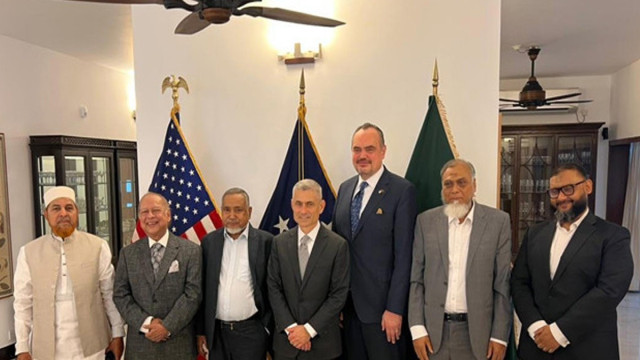

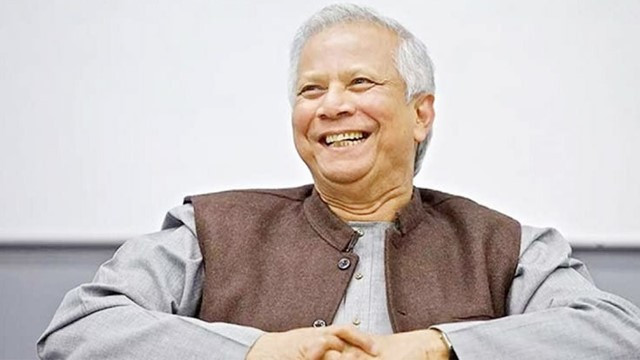


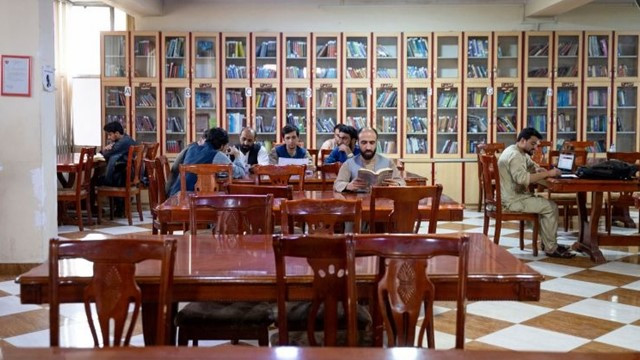
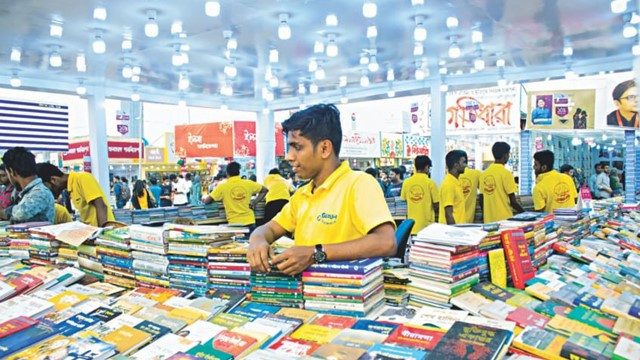
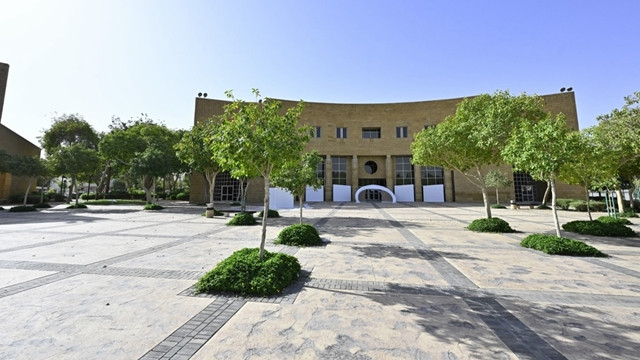
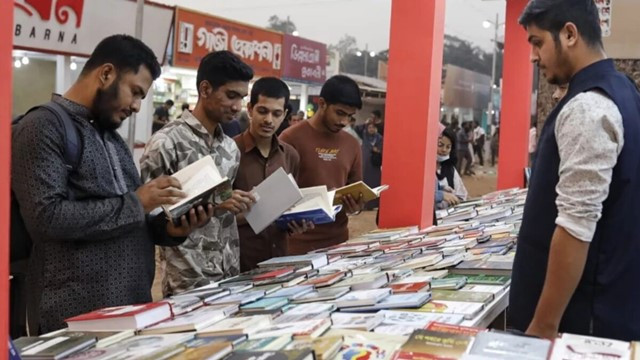
Comments Here: